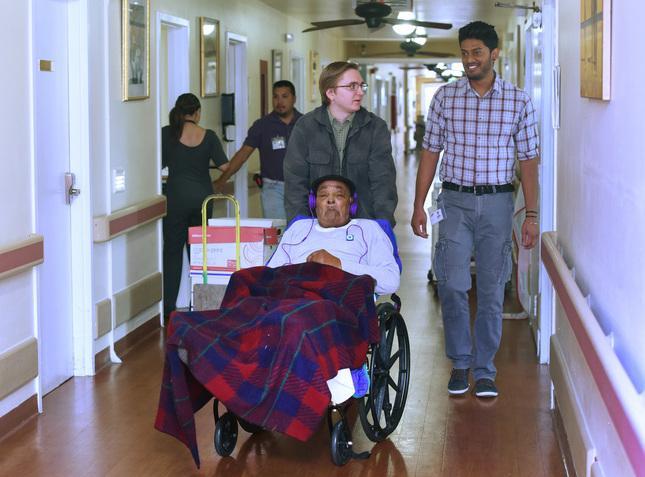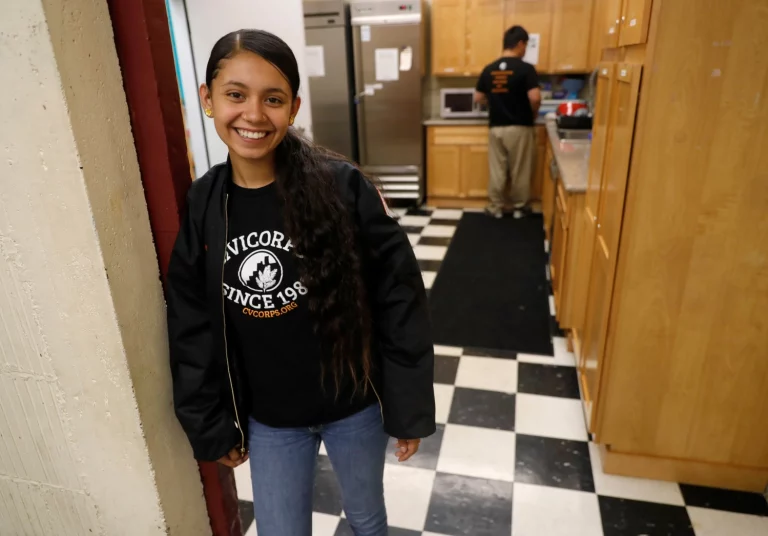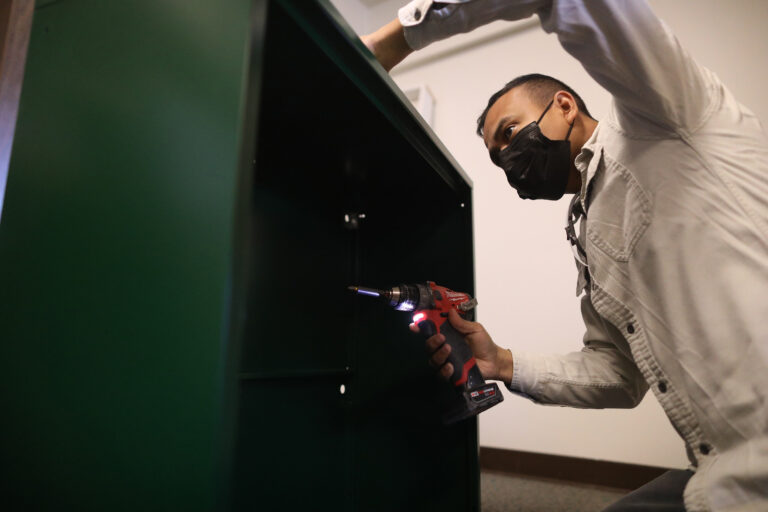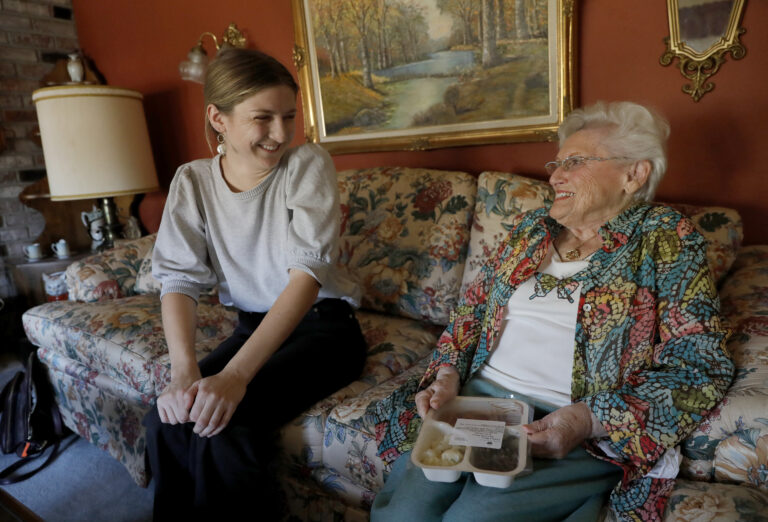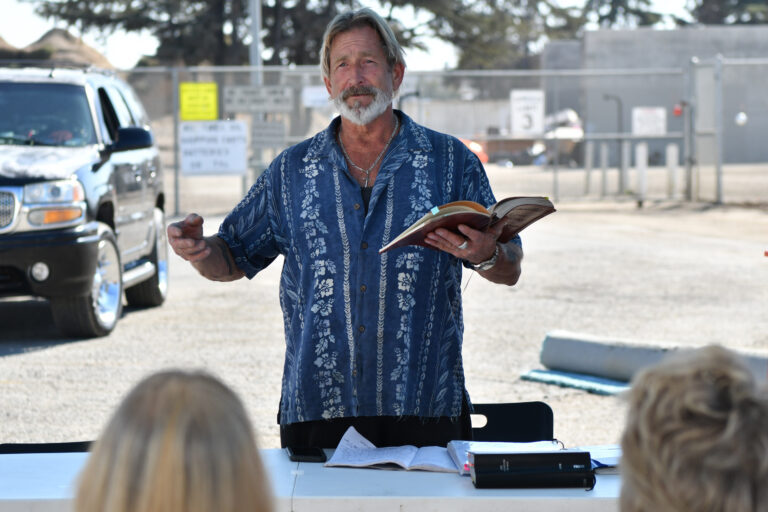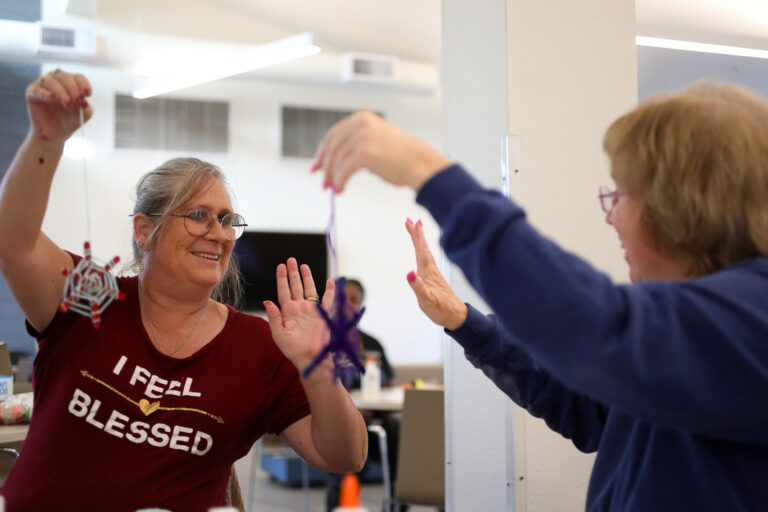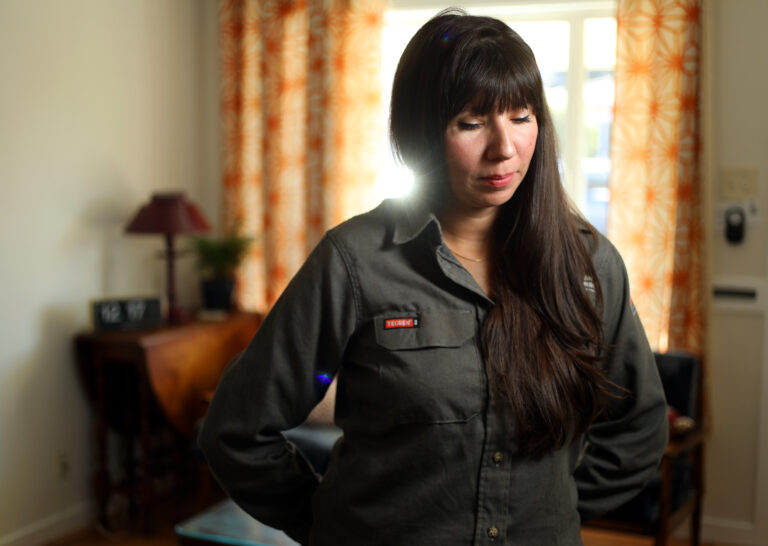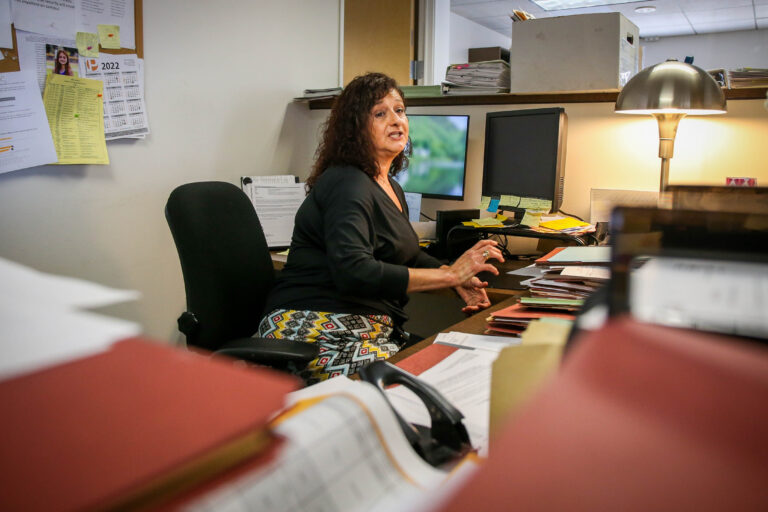Jerome Bassinger was lying in bed watching a movie on his tablet when a nursing home employee stopped by the room with an iPod Nano.
Scrolling through one of the playlists that comprised the 692 songs stored on the device, he settled on Peggy Lee’s 1958 version of “Fever” and gently placed headphones over Bassinger’s ears.
Never know how much I love you,
Never know how much I care
When you put your arms around me
I get a fever that’s so hard to bear
Debilitating depression keeps Bassinger under the covers most of the day, but Lee’s sultry voice and finger-snapping rhythms this afternoon brought a sweet smile to the face of the torch singer’s 77-year-old fan.
“It’s remarkable the sound you get out of these (headphones),” Bassinger murmured.
“I feel uplifted. I have trouble with depression, and it helps get rid of that.”
Bassinger is among dozens of East Bay nursing home residents whose lives LITA of Contra Costa is enriching with music from a bygone era, familiar songs they associate with happier times.
Established in 1980, the Port Costa-based nonprofit otherwise known as Love Is The Answer provides a smorgasbord of social activities for the elderly and disabled in long-term care facilities. It has received funding for its holiday program this year from Share the Spirit, an annual campaign to enhance the holiday season for needy residents in the East Bay. The grant is administered by the Volunteer Center of the East Bay, and donations support more than 30 nonprofit agencies in Contra Costa and Alameda counties.
Two years ago, Executive Director Victoria Ryan also began using vocals and instruments as a therapeutic tool for patients whose dementia had sentenced them to a virtual prison as it robbed them of memory, reason — even the ability to speak.
She launched the Music Awakenings iPod Compassion Project in Martinez with six iPods, a handful of residents and the certainty that hearing favorite songs from the past any time they want would free them temporarily from their mental fog.
“We never thought about music as more than entertainment,” said Dipa Gupta, administrator of Legacy Nursing and Rehabilitation Center in Martinez, noting that the facility’s use of song and instruments traditionally had been limited to holiday singalongs and occasional live performances.
Last year, LITA turned its attention to an El Sobrante retirement home, outfitting several of its residents with portable music players.
The organization subsequently trained employees at both facilities to use the devices effectively as well as better understand music’s medical benefits.
The presentations included a showing of “Alive Inside,” an award-winning documentary about the power of music to combat memory loss by evoking fond memories that seniors had associated with particular songs.”It can bring back anything,” said Guy Kachur, Legacy’s activities director.
Take Jeanette Rutherford, an 89-year-old dementia patient who remembers the Sinatra concert she and her new husband attended in 1953 — a performance that moved her to tears — when she hears Ol’ Blue Eyes’ baritone.
“It brings back a lot of memories. Oh, yeah … romantic memories,” she smiled.
That’s why tailoring music to the individual is key: Along with LITA volunteers, Kachur interviews patients or their families to find out which genres they prefer before downloading songs onto the devices.
“This program only works if the music is personalized for each resident,” he said.
But the iPod Shuffles and Nanos do more than facilitate strolls down memory lane.
Ryan has witnessed patients who have stopped talking undergo a dramatic transformation when she has taken up well-known melodies such as “You are My Sunshine” and “God Bless America.”
“They will open up their mouths and sing all the words right along with me,” she said.
“We’ve noticed that music really calms them down,” Kachur added, noting that residents will remain more manageable for about a day after listening to their favorites.
Hoping for donations of iPod Shuffles and Nanos in working condition along with new over-the-ear headphones, Ryan wants to get the devices into the hands of the El Sobrante facility’s remaining residents.
And with only four iPods to its name, Legacy Nursing and Rehabilitation Center also needs about five dozen more, she said, noting that Nanos run well over $100 each, not including the cost of headphones and chargers.
Over the next five years, Ryan plans to introduce the electronics to eight additional nursing homes, and she dreams of LITA’s project becoming a standard for nursing homes statewide.
“It has to do with my purpose in life,” Ryan said of the satisfaction she derives from her work. “You see … a look of hope and happiness on their faces. Not everybody can sing, but everybody can bring music.”
